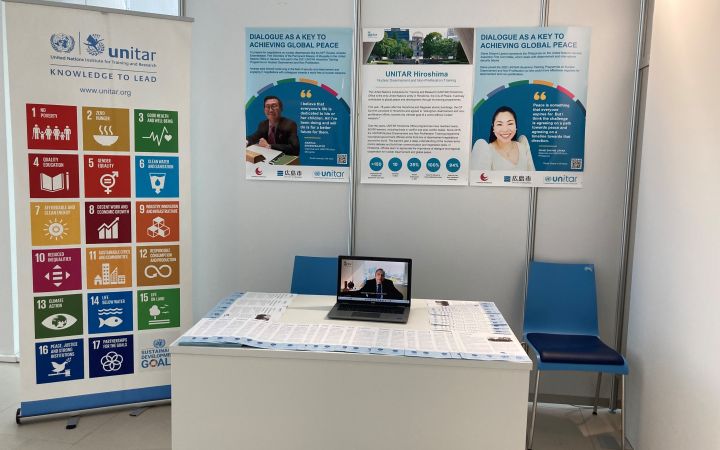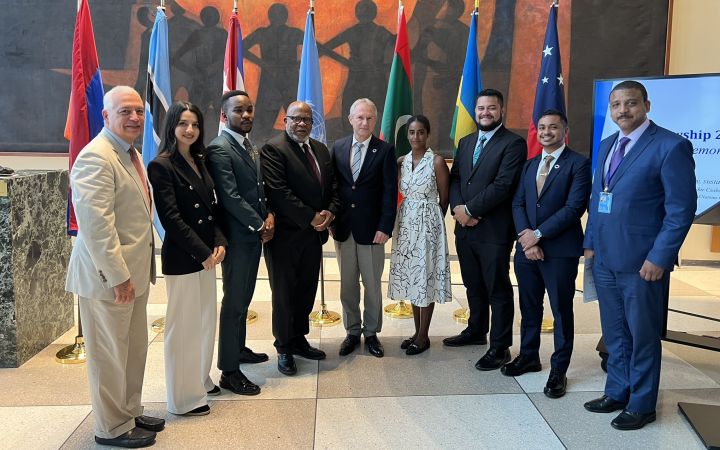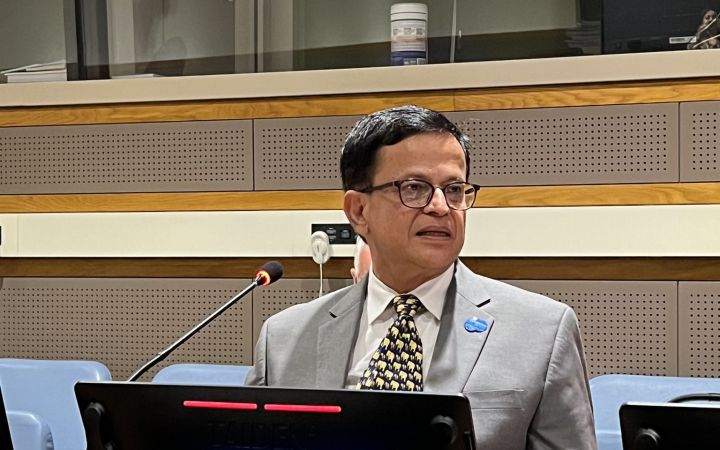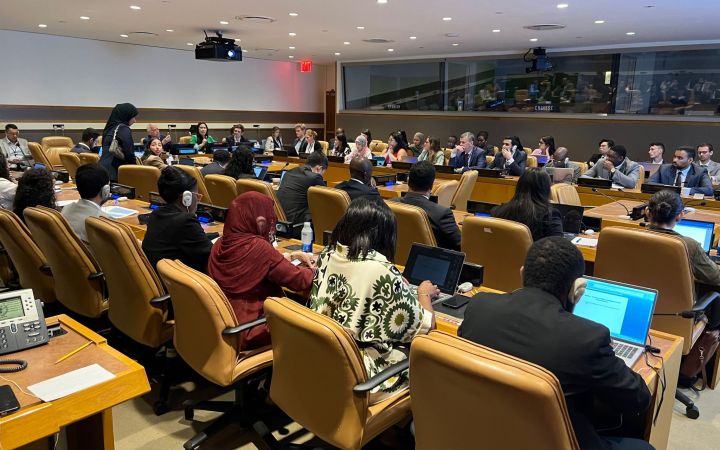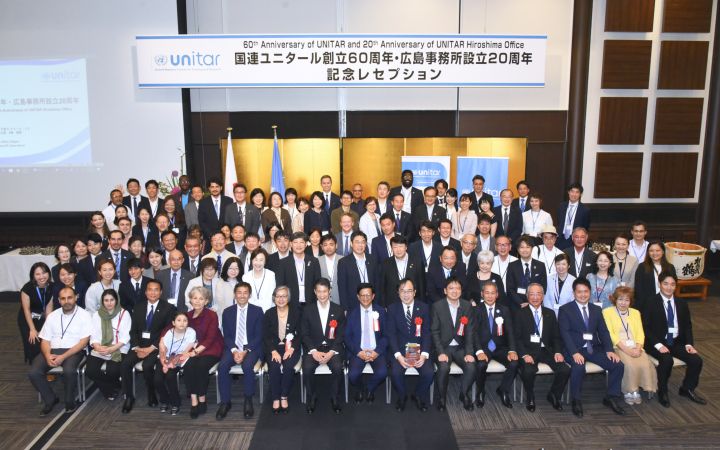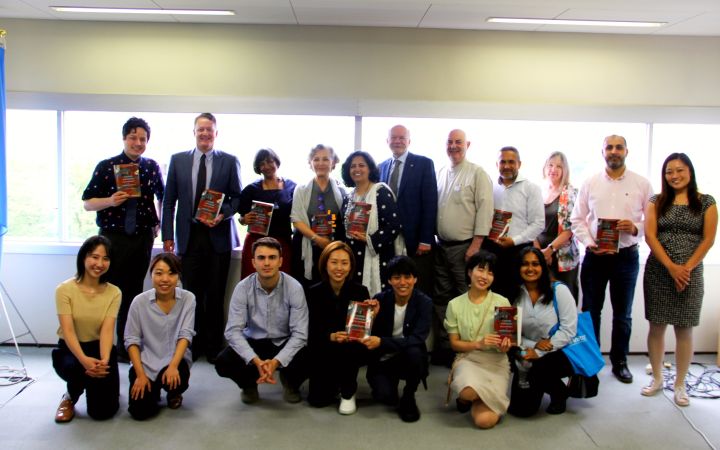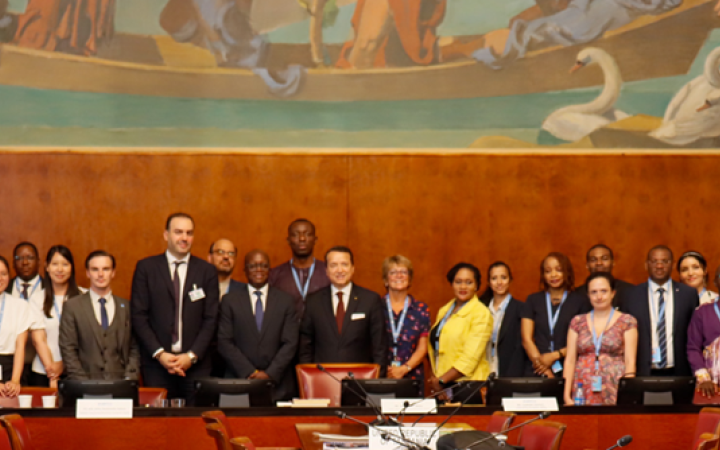Displaying 671 - 680 of 3483
28 July, Hiroshima, Japan – UNITAR will hold an exhibit featuring its Hiroshima Training Programme on Nuclear Disarmament and Non-Proliferation from 31 July to 11 August 2023 in Vienna. The exhibit will be held in parallel with the first session of the Preparatory Committee for the 2026 Review of the Parties to the Treaty on the Non-Proliferation of Nuclear Weapons (NPT), organized by the United Nations Office for Disarmament Affairs.
27 July 2023, New York, USA - The United Nations Institute for Training and Research (UNITAR) New York Office, in collaboration with the Office of the President of the General Assembly (OPGA) for the 77th session, successfully concluded the 2023 President of the General Assembly Fellowship Programme with a closing ceremony. The event aimed to celebrate the graduation of the fellows from the fellowship programme.
26 July 2023, Madrid, Spain – UNITAR launched the Autosobriety Training Programme to Prevent Drink-Driving in Spain jointly with CIFAL Madrid, the Royal Automobile Club of Spain (RACE) and with the support of Pernod Ricard.
25 July 2023, New York, USA – 10 - 18 July 2023 UNITAR Executive Director went on an official visit to New York City for UNITAR’s 60th Anniversary celebrations and the High-Level Political Forum. Throughout the one-week visit, Mr Seth attended various events and met with multiple high-level officials.
25 July 2023, Hiroshima, Japan – Ukrainian women refugees in Poland are invited to apply to the UNITAR Bolstering Livelihoods: Digital Reskilling for Ukrainian Women Evacuees in Poland training programme. The deadline for applications is extended until 11 September 2023.
21 July 2023, New York, USA – The United Nations Institute for Training and Research New York Office (UNITAR NYO) held an annual workshop on The Structure, Drafting, and Adoption of United Nations Resolutions at the UN headquarters beginning in conference room 7. This training attended by 125 participants, was supported with funding allocated from the Swedish International Development Agency’s (SIDA) contribution to the UNITAR Strategic Framework Fund, under the programme ‘Leveling The Playing Field’ which focuses on the development of skills and knowledge of Least Developing Countries.
21 July 2023, Hiroshima, Japan – The United Nations Institute for Training and Research (UNITAR) held ceremonies in Tokyo and Hiroshima to celebrate its 60th anniversary and the 20th anniversary of the UNITAR Hiroshima Office. The ceremony in Tokyo was held at the United Nations University on 29 June, while the ceremony in Hiroshima was held at Mielparque Hiroshima Hotel on 30 June.
21 July 2023, Hiroshima, Japan – On DATE, UNITAR Hiroshima Office celebrated the publication of The UNITAR Hiroshima Fellowship for Afghanistan: An Anthology with a book launch and roundtable event. The event was part of the Hiroshima Office’s 20th-anniversary celebrations.
14 July 2023, New York, USA – United Nations Institute for Training and Research – New York Office (UNITAR - NYO), Global Foundation for the Performing Arts (GFPA), and Carnegie Hall hosted the monumental "All-Star Festival, Symphony of Solidarity: The Same Language" concert on July 11, celebrating the 60th anniversary of UNITAR. Sponsored by the member states Costa Rica, Ecuador, Singapore, Monaco, and Oman as well as the United Nations High Commissioner for Human Rights and Grammophone Megazine, this memorable event was a harmonious collaboration of UNITAR's New York Office, Carnegie Hall, and the GFPA, demonstrating their shared commitment to overcoming global challenges through unity, knowledge, and the power of music.
14 July 2023, Geneva, Switzerland - UNITAR has successfully concluded a four-day training on Public Policy for Sustainable Development skills for Geneva's diplomatic community at the Palais des Nations, bringing together 24 participants from over 20 member-states of the Non-Aligned Movement (NAM). The workshop consisted of eight interactive sessions led by world-class experts, including Ambassadors and senior UN officials, all working to equip participants with the skills and knowledge necessary to impact global public policies.


